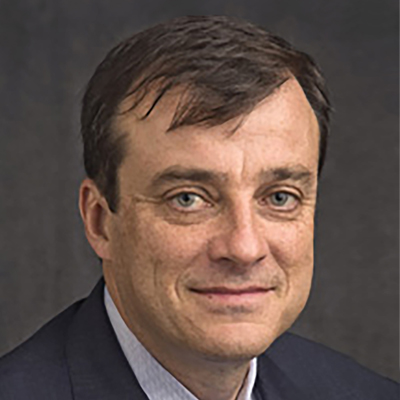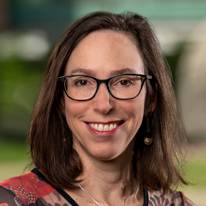The Power of Big Data in Personalized Medicine
September 2021
We’ve been told time and time again that data is king. The more information we have, the better we can organize ourselves to deliver the best possible outcomes. Nowadays, there is so much data that it’s impossible to easily process and interpret it like we used to. Enter bioinformatics.
This ever-evolving multidisciplinary field seeks to analyze and manage huge quantities of biological, molecular and genetic data through technology. Simply put, informatics is the process of making large-scale data usable, interpretable and accessible. And at the University of Colorado Anschutz Medical Campus, our researchers are working with data in ways that will impact human lives.
Over the past few years, it has become increasingly clear that utilizing data in mass quantities will be critical to understanding informative patterns of diseases and the efficacy of personalized treatments."

John J. Reilly, Jr.
MD, Vice Chancellor for Health Affairs, Dean, CU School of Medicine, Richard D. Krugman, MD, School of Medicine Dean's Endowed Chair
In healthcare there are vast sources of data, from hospital and patient records to test results, and the amount of available information is growing at a tremendous rate. This new digital frontier offers an opportunity for healthcare professionals to take advantage of data and generate powerful insights. As the premier destination for innovation and discovery in the Rocky Mountain region, the CU Anschutz Medical Campus is committed to expanding our talented team and investing in the resources needed to push this important work forward.
“Bioinformatics, data science and artificial intelligence (AI) will be foundational to the future of medicine and healthcare – impacting everything from how we understand illness and disease, to how we address prevention and treatment, to how providers make clinical decisions in real time,” said Chancellor Don Elliman.
Building on the existing bioinformatics expertise in the Colorado School of Public Health and the Colorado Center for Personalized Medicine, our campus has “gone big” to recruit additional leaders in data science and informatics to create a new data-mining dream team:
Casey Greene, PhD, an esteemed leader in the field of data analytics, was named director of the Center for Health Artificial Intelligence. Greene also serves as a professor in the Department of Biochemistry and Molecular Genetics at the CU School of Medicine.
Sean Davis, MD, PhD, a 13-year veteran of the National Cancer Institute, was hired to serve as associate director for informatics and data science and deputy director for the Center for Health Artificial Intelligence. Davis also serves as the Rifkin and Bennis Endowed Chair in Cancer Bioinformatics.
Melissa Haendel, PhD, was named the university’s first chief research informatics officer (CRIO), a new position responsible for transforming the campus use of information and information systems to accelerate biomedical discoveries, streamline health system operations, and continuously improve patient care. Haendel also serves as the Marsico Chair in Data Science.
At the CU Anschutz Medical Campus, we have an excellent opportunity to work together to make a difference for patients, learners, researchers, and the entire biomedical community. Collaboration is key to realizing the promise of personalized medicine, deploying new models for training health professionals and achieving global research prominence."

Melissa Haendel
PhD, Chief Research Informatics Officer and Marsico Chair in Data Science“With AI and machine learning, it’s all about extracting the right information and putting it in front of the right person at the right time so it can inform the best treatment plan possible,” Greene explained. “We are working to make serendipity in healthcare routine.”

“Identifying connections within and between datasets is key to success in precision medicine, improving health and understanding disease,” added Davis.
This innovation would not be possible without community support. Philanthropy allows us to attract and retain the best and brightest minds to accelerate translational research efforts and guide clinical care. Because of generous benefactors like you, the promise of bold research breakthroughs and practical informatics applications is becoming a reality.
"The Rifkin family was drawn to investing in bioinformatics at CU Anschutz because of the promise it represents for future patients and families. We stand with the university and its commitment to build talent and infrastructure in the areas of data science and informatics. We look forward to seeing what these amazing data experts can accomplish together."
Monty Rifkin
Benefactor
We know that bioinformatics and data science will fundamentally reshape the healthcare landscape. As an academic medical center, our campus stands apart in the bioinformatics space and we intend to keep the momentum going.
“The stage is set here at CU Anschutz to transform how we teach, how we conduct research, how we treat patients and ultimately how we improve the health of Coloradans,” Greene said.
CU Anschutz Fund for Excellence
To provide a flexible funding source to address CU Anschutz's most promising priorities in support of research, education and patient care.